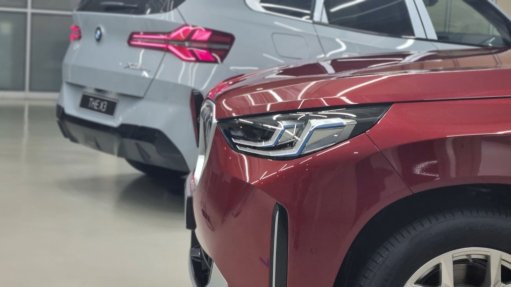Militants with a boardroom veto
Mozambican officials, desperate to jump-start economic development in the south-eastern African nation, must have breathed a sigh of relief when TotalEnergies chairperson and CEO Patrick Pouyanné reiterated last week that the French energy giant would restart its $20-billion liquefied natural gas (LNG) project in the northern Cabo Delgado province by the end of this year, after a four-year freeze. But the relief was muted, as Cabo Delgado remains stalked by Islamic State-linked militants, and the LNG hub looks less like a worksite than a fortified enclave guarded by Rwandan troops.
The project is a microcosm of Africa’s development paradox. The continent abounds with massive natural resource endowments, yet in some countries insurgencies – and other crises – act like veto players at the boardroom table, dictating when, where and if projects can proceed.
Mozambique, one of the world’s poorest and most climate-vulnerable countries, holds vast gas reserves. The TotalEnergies LNG project, designed to exploit two deep-water fields and build a 13.1-million-ton-a-year-capacity liquefication plan, was suspended in April 2021 after militants seized the nearby town of Palma.
Should the project come to fruition – in 2029, according to the current timeline – its economic implications would be enormous. Analysts estimate that tens of thousands of direct and indirect jobs would be created, while export earnings and government revenues would surge. Infrastructure to support the LNG hub would expand dramatically, and Mozambique would get a rare opportunity to diversify its agriculture-, mining- and aid-heavy economy.
But rebooting the project is not just an engineering challenge; it requires military logistics and delicate local alliances, as Cabo Delgado is still bleeding, with media reports from as recently as July noting renewed insurgent attacks that displaced 46 000 people across three districts in the province.
The Cabo Delgado LNG development is not the only African megaproject to be brought to a standstill by Islamist insurgents. In April, The Wall Street Journal described how al-Qaeda and al-Shabaab attacks had “punctured” Kenya’s ambitions for the Lamu Port–South Sudan–Ethiopia Transport (LAPSSET) Corridor project, a $24-billion integrated infrastructure plan comprising a deep-sea port, a network of highways and railways connecting the port to key economic hubs in Kenya, Ethiopia and South Sudan, and a pipeline transporting crude oil from South Sudan.
Road-manning crews are frequently attacked, and security fears now spook contractors. Only three of the port’s planned 32 berths are operational, with a significant proportion of the corridor’s roads, pipelines and rail still speculative because of insecurity.
Some of the corridor’s signature components remain in limbo, partly because of the security environment – the kind of partial derailment that kills investor confidence.
Also in East Africa, although not thwarted by insurgency, the East African Crude Oil Pipeline, designed to connect Uganda’s oil reserves to international markets, has faced serious financing pullbacks.
By the end of 2024, the $5-billion project – part of the broader $15-billion energy plan by Total Energies, China’s CNOOC and other partners to develop the Kingfisher and Tilenga discoveries close to Lake Albert – had yet to reach financial close. More than 40 banks globally, including 28 from Europe, have ruled out extending financing to the project, citing human rights and environmental concerns.
However, Uganda’s The Independent newspaper reported in March that a syndicate of African financial institutions had closed the first tranche of financing for the project.
Megaprojects such as TotalEnergies’ Cabo Delgado LNG project in Mozambique and the LAPSSET Corridor project in East Africa are transformational bets that could alter the trajectories of countries’ economies. Yet insurgents have shown that they don’t need to destroy projects outright to derail development dreams. Simply delaying capital flows – and in the process damaging investor confidence – can have the same effect.
In the case of Mozambique, the $20-billion LNG investment, the biggest investment by private entities in Africa, was literally shelved for four years because security trumped geology.
Meanwhile, in Kenya, the grand corridor dream is bleeding viability partly because al-Shabaab has decided to make the north of the country a no-go area for many contractors.
And in projects such as EACOP, the wariness in the banking community is less about technical feasibility than environmental concerns.
Article Enquiry
Email Article
Save Article
Feedback
To advertise email advertising@creamermedia.co.za or click here
Press Office
Announcements
What's On
Subscribe to improve your user experience...
Option 1 (equivalent of R125 a month):
Receive a weekly copy of Creamer Media's Engineering News & Mining Weekly magazine
(print copy for those in South Africa and e-magazine for those outside of South Africa)
Receive daily email newsletters
Access to full search results
Access archive of magazine back copies
Access to Projects in Progress
Access to ONE Research Report of your choice in PDF format
Option 2 (equivalent of R375 a month):
All benefits from Option 1
PLUS
Access to Creamer Media's Research Channel Africa for ALL Research Reports, in PDF format, on various industrial and mining sectors
including Electricity; Water; Energy Transition; Hydrogen; Roads, Rail and Ports; Coal; Gold; Platinum; Battery Metals; etc.
Already a subscriber?
Forgotten your password?
Receive weekly copy of Creamer Media's Engineering News & Mining Weekly magazine (print copy for those in South Africa and e-magazine for those outside of South Africa)
➕
Recieve daily email newsletters
➕
Access to full search results
➕
Access archive of magazine back copies
➕
Access to Projects in Progress
➕
Access to ONE Research Report of your choice in PDF format
RESEARCH CHANNEL AFRICA
R4500 (equivalent of R375 a month)
SUBSCRIBEAll benefits from Option 1
➕
Access to Creamer Media's Research Channel Africa for ALL Research Reports on various industrial and mining sectors, in PDF format, including on:
Electricity
➕
Water
➕
Energy Transition
➕
Hydrogen
➕
Roads, Rail and Ports
➕
Coal
➕
Gold
➕
Platinum
➕
Battery Metals
➕
etc.
Receive all benefits from Option 1 or Option 2 delivered to numerous people at your company
➕
Multiple User names and Passwords for simultaneous log-ins
➕
Intranet integration access to all in your organisation

















